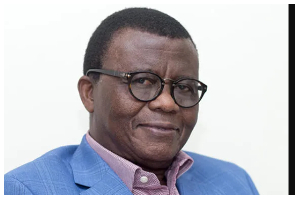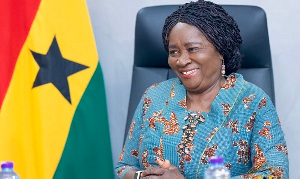A move has been initiated to close the gap between industry and academia, so that their works can be mutually beneficial. The initiative at the instance of local construction giant Berock Ventures as part of the company’s 20th anniversary brought together captains of industry as well as academic dons including President and Pro Vice Chancellors of both private and public universities in Ghana, at a meeting in Accra.
There have been several complaints that a significant number of graduates turned out by schools in the country are not suitable for the workplace, while good research work by tertiary institutions and research bodies are left to gather dust on shelves. These challenges are considered symptoms of a huge gap between industry and academia, a situation that many believe has adversely affected the country’s development.
However, as part of its anniversary celebrations, Berock Ventures Ltd. created a platform for key stakeholders to discuss the issue and come out with a plan to bridge this gap. Making the opening remarks, the Founder and Chairman of Berock Ventures Rocks Dogbegah noted the challenge that business owners and managers face in employing suitable candidate. He said a huge number of graduates from the country’s tertiary institutions, and even technical as well as vocational schools, is simply unemployable and called for urgent moves to address the challenge.
Chief Executive Officer of Tropical Cable and Conductors Ltd. and a former President of the Association of Ghana Industries, Tony Oteng-Gyasi, also lamented the weak impact of Research Institutions on industry. He said it should be possible for research and tertiary institutions to find workable solutions to problems confronting industry. He also stressed the need for these bodies to commercialise their work.
On his part, the President of Central University College Prof. Kwesi Yankah admitted the gap between the two bodies -- but said changes are taking place within academia. He however added that the change is not fast enough.
He said universities globally have two streams of recruiting lecturers which include employing academics as well as people with rich professional backgrounds, and urged tertiary institutions to pay a lot of attention to the recruitment of people with rich work experience as a way of bridging the gap.
He mentioned that Central University College continuously introduces courses based on demands of industry, but said some bureaucratic bottlenecks within the education system sometimes frustrate the speed with which new and relevant courses are introduced.
The Pro Vice Chancellor of the Kwame Nkrumah University of Science and Technology, Prof. Samuel Nii, said it is important for government, industry and academia to work together in addressing the challenge. He noted the relevance of internship in preparing students for the world of work, but said the dwindling fortunes and collapse of industry with increasing number of students’ intake makes practical attachments almost impossible. He called for a University and Industry Fair as part of moves to bridge the gap.
The representative of the Vice Chancellor of the University of Ghana, Prof. Samuel Sackey, spoke of new initiatives to prepare students for the place of work. Prof. Sackey, who is also Acting Director the Institute of Applied science and Technology, said the new PhD programme introduced at the University compels students to do a one-year attachment. He also mentioned that a number of practical-oriented courses are being introduced, and supported the call for closer collaboration.
A former lecturer at KNUST and universities in the United States of America who has been part of previous efforts to bridge the industry and academia gap, Dr. Jerome Antonio, said industry needs to have a say in the curricula of schools. He also said tertiary institutions need Advisory Boards -- properly constituted and oriented -- to ensure that their work is relevant to industry and the country.
Renowned Civil Engineer and Traditional Ruler Torgbui Kporku III, Dufia of Alakple who chaired the meeting, said there is an urgent need to address the challenges of industry so it can bloom and provide internship and employment opportunities to the youth. He outlined other events that will follow the meeting to ensure the initiative does not end up as a talk-shop.
Other experts present shared examples of other countries where challenges confronting specific companies are treated as topics and class-work in universities for workable solutions which are then applied, and said Ghana should learn from these practices.
Ghana Real Estate Developers Association, which was represented by its President Kwakye Dopoah-Dei and Executive Secretary Sammy Amegayibor, pledged to also support Berock Ventures in sponsoring the initiative to bridge the gap between industry and academia.
Business News of Tuesday, 12 November 2013
Source: B&FT












